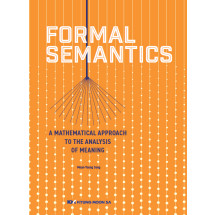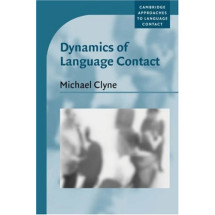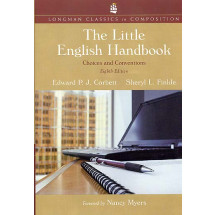Part 1: Tense, Aspect, and Event Structure
1. Verbs and Times, Z. Vendler
2. The Syntax of Event Structure, James Pustejovsky
3. The Algebra of Events, Emmon Bach
4. The Tense of Verbs, Hans Reichenbach
5. Tense Logic and the Logic of Earlier and Later, A.N. Prior
6. Temporal Ontology and Temporal Reference, Marc Moens and Mark Steedman
7. Deriving Verbal and Compositional Lexical Aspect for NLP Applications, Bonnie J. Door and Mari Broman Olsen
8. A Computational Model of the Semantics of Tense and Aspect, Rebecca J. Passonneau
Part II: Temporal Reasoning
9. A Temporal Logic for Reasoning About Processes and Plans, Drew McDermot
10. A Logic-Based Calculus of Events, Robert Kowalski and Marek Sergot
11. Extending the Event Calculus with Temporal Granularity and Indeterminacy, Luca Chittaro and Carlo Combi
12. Towards a General Theory of Action and Time, James F. Allen
13. A Critical Examination of Allen's Theory of Action and Time, Antony Galton
14. Annotating and Reasoning About Time and Events, Jerry Hobbs and James Pustejovsky
Part III: Temporal Structure of Discourse
15. The Effects of Aspectual Class on the Temporal Structure of Discourse: Semantics or Pragmatics?, David R. Dowty
16. Temporal Relations, Discourse Structure, and Commonsense Entailment, Alex Lascarides and Nicholas Asher
17. News Stories as Narratives, Allan Bell
18. Tense as Discourse Anaphor, Bonnie Lynn Webber
19. Tense Interpretation in the Context of Narrative, Fei Song and Robin Cohen
20. An Empirical Approach to Temporal Reference Resolution, Janyce Wiebe, Tom O'Hara, Thorsten Ohrstrom-Sandgren, and K. J. McKeever
21. Tense Trees as the Fine Structure of Discourse, Chung Hee Hwang and Lenhart K. Schubert
22. Algorithms for Analyzing the Temporal Structure of Discourse, Janet Hitzeman, Marc Moens, and Claire GroverPart IV: Temporal Annotation
23. A Multilingual Approach to Annotating and Extracting Temporal Information, George Wilson, Inderjeet Mani, Beth Sundheim, and Lisa Ferro
24. The Annotation of Temporal Information in Natural Language Sentences, Graham Katz and Fabrizio Arosio
25. Assigning Time-Stamps to Event-Clauses, Elena Filatove and Eduard Hovy
26. From Temporal Expressions to Temporal Information: Semantic Tagging of News Messages, Franck Schilder and Christopher Habel
27. The Specification Language TimeML, James Pustejovsky, Robert Ingria, Roser Sauri, Jose Castano, Jessica Littman, Robert Gaizauskas, Andrea Setzer, Graham Katz, and Inderjeet Mani
28. A Model for Processing Temporal References in Chinese, Wenjie Li, Kam-Fai Wong, and Chunfa Yuan
29. Using Semantic Inference for Temporal Annotation Comparison, Andrea Setzer, Robert Gaizauskas, and Mark Hepple
Inderjeet Mani is Associate Professor of Linguistics at Georgetown University, where he chairs the program in Computational Linguistics. He works on the computer understanding of temporal narrative and on ontologies for natural language processing. His work on automatic summarization has included new summarization methods as well as evaluation techniques, while his research on temporal information extraction has led to the development of taggers for temporal expressions in various languages. He has served on the Editorial Board of the journal Computational Linguistics (2002-4), and has published more than fifty scientific papers and two books: Automatic Summarization (2001) and the co-edited volume Advances in Automatic Text Summarization (1999). James Pustejovsky is Professor of Computer Science and Director of the Laboratory for Linguistics and Computation at Brandeis University. His research focuses on the areas of computational and theoretical models of lexical semantics, temporal reasoning, knowledge representation, and information extraction and retrieval in bioinformatics. His books include The Generative Lexicon (1995), Meaning in Context (2005), and the edited volumes Lexical Semantics and Knowledge Representation (1992 with Sabine Bergler), Semantics and the Lexicon (1993); Lexical Semantics and the Problem of Polysemy (1997 with Bran Boguraev), and Events as Grammatical Objects (2000 with Carol Tenny). Robert Gaizauskas is Professor of Computer Science at the University of Sheffield. His research interests lie in applied natural language processing, especially information extraction and retrieval, both from newswire text and from scientific writing, particularly medical and biological text. He also works on automatic question answering and summarization, on the extraction of temporal information from texts and has an on-going interest in evaluation of language technology. He has published over 80 papers in peer-reviewed journals and conference proceedings.












